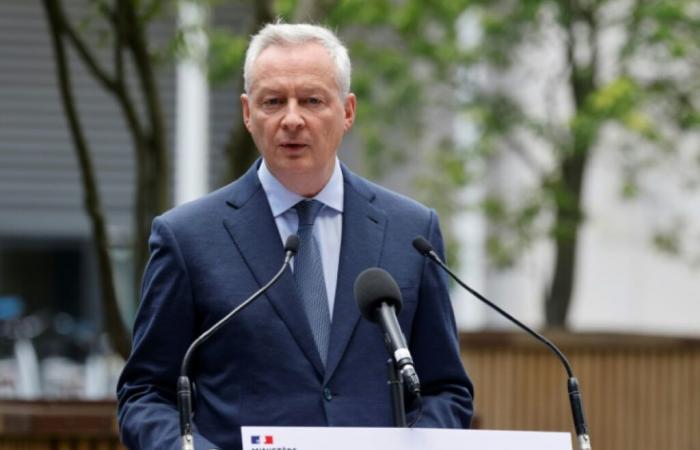
Former Minister of the Economy Bruno Le Maire on the occasion of his departure from Bercy, September 12, 2024 in Paris (AFP / Ludovic MARIN)
The former Minister of Economy and Finance, Bruno Le Maire, estimated Thursday that the slippage of France's public deficit to 6.1% of GDP in 2024 was “the choice of the current government”, refuting any “fault ” or “concealment” on the situation of public accounts.
“When I am told that the deficit in 2024 will be at 6.1%, it is the choice of the current government. And I will provide all the evidence that we could have in 2024, with more rigorous recovery measures, a deficit around 5.5%, I therefore formally contest this figure of 6.1%,” declared Mr. Le Maire, explaining himself to the Senate Finance Committee as part of an information mission on the drift. public finances.
According to the end-of-management finance bill presented Wednesday to the Council of Ministers, the public deficit will slip to 6.1% of GDP in 2024. It was forecast at 4.4% in the initial finance bill presented in the fall of 2023, then raised to 5.1% in the spring by the previous government, in which Mr. Le Maire led Bercy for more than seven years.
“There was no fault, no concealment, no desire to deceive. There was fundamentally a serious technical error in the evaluation of revenues for which we are paying the price,” explained the former great financier, who left to teach in Lausanne.
Revenues were initially estimated to be 41.5 billion euros higher than they actually will be in 2024, while growth was revised down by 1.4% to 1.1%.
Mr. Le Maire insisted on the fact that “never, at any time, neither the cabinet, nor a fortiori the minister, say a word about the evaluation of revenues”, which is a “technical” exercise. There is “total impermeability”, he added. “The minister does not comment. The politician does not comment, and besides, that is perhaps a good thing, because if the politician started to get involved in the evaluation of revenue, we would cry handling.”
He also underlined that the previous government had spent massively to support households and businesses during successive crises, before initiating savings measures in the face of the increase in French public debt. The ex-minister said he even “resisted” some 400 billion in additional spending which was then demanded by parliamentarians from all sides.





